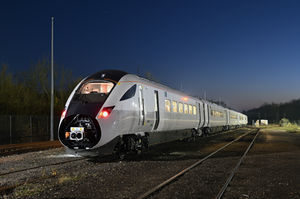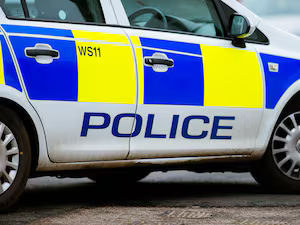New trains move under own power for the first time
The first of 23 new trains which will provide express services throughout the West Midlands has moved under its own power for the first time.

Train No. 805001, the first of 13 new 'bi-mode' trains due to go into service on the West Coast mainline next year, left its factory in County Durham and began testing at Network Rail's centre in Leicestershire this week.
It will be joined by a second train, No. 805003, next month, and then in January both trains will move to Oxley depot in Wolverhampton for a period of intense mainline testing.
They are the first of 13 'bi-mode' units, based on the Japanese A-Train, can switch seamlessly between electric and diesel power. Each train will be made up of five carriages.
They will replace the diesel Voyager trains which have operated on the West Coast mainline for the past 20 years.





